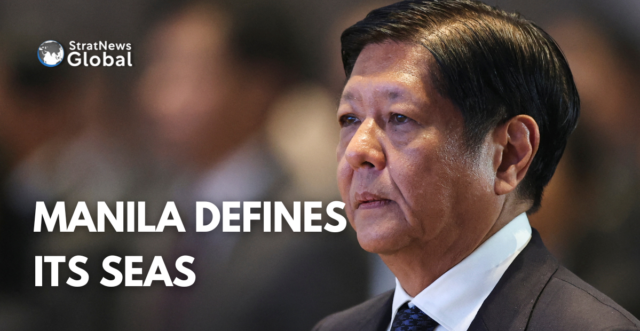Philippine President Ferdinand Marcos Jr. has signed two significant laws aimed at reinforcing the country’s maritime sovereignty in the South China Sea amid ongoing disputes with China. The Maritime Zones Act and Archipelagic Sea Lanes Act will help define the Philippines’ maritime boundaries and secure designated sea lanes and air routes. These laws are intended to support the country’s sovereign rights, particularly its exclusive economic zone (EEZ), under international law.
Defining Maritime Boundaries to Protect Economic Resources
Marcos lauded the laws as a firm commitment to uphold international order and protect the Philippines’ rights over its maritime resources. “Our people, especially our fisherfolk, should be able to pursue their livelihood free from uncertainty and harassment,” he said, emphasising the need to protect access to resources in the seabed, including minerals and energy.
While these new measures aim to support the Philippines’ ability to monitor and defend its waters, questions remain about the practical enforcement of these laws, especially with China’s continued presence in the region. Chinese coast guard vessels have been accused of aggressive actions toward neighbouring countries’ energy and fisheries operations within their EEZs.’
Strengthening International Support and Upholding 2016 Ruling
Senator Francis Tolentino, a key proponent of the maritime laws, acknowledged that the measures might not immediately ease tensions with China but believes international support could enhance the Philippines’ stance. “China will not recognise these laws, but the imprimatur we gain from the international community strengthens our position,” he stated.
The laws also reinforce the 2016 ruling by an international tribunal that invalidated China’s expansive claims in the South China Sea, a decision China has consistently rejected. Tolentino affirmed that the new legislation would bolster the Philippines’ adherence to the tribunal’s ruling.
With these laws in place, the Philippines seeks to assert its sovereignty and signal its dedication to international maritime law, even as challenges persist with China’s claims in the South China Sea.
(With Inputs from Reuters)
Research Associate at StratNewsGlobal, A keen observer of #China and Foreign Affairs. Writer, Weibo Trends, Analyst.
Twitter: @resham_sng





